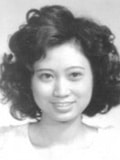
More Complementary & Integrative Healthcare Articles
Acupuncture For Acid Reflux
Acid reflux (gastroesophageal reflux disease, GERD) is the backflow of gastric contents into the esophagus and past the lower esophageal sphincter (LES), without associated belching or vomiting. Persistent reflux may cause inflammation of the esophageal mucosa (esophagitis). Reflux occurs when LES pressure is deficient or when pressure within the stomach exceeds LES pressure. Predisposing factors include any agent that lowers LES pressure certain foods, alcohol, drugs (morphine, diazepam, and meperidine), hiatal hernia, and any condition that increases intra-abdominal pressure (obesity, pregnancy, tight belts, effort needed to evacuate stools associated with constipation, etc.).
The most common feature of acid reflux is heartburn, which may become more severe with vigorous exercise, bending, or lying down. Esophageal spasm may mimic chest pain, radiating to the neck, jaw and arms. Other symptoms include a dull substernal ache, bleeding or nocturnal regurgitation that wakens the patient with coughing. Reflux of gastric contents into the throat and subsequent aspiration may cause chronic cough, bronchitis, asthma, or aspiration pneumonia.
Treatment is managed on multiple levels. Symptoms may be relieved by gravity, using a high pillow, avoiding lying on the right or left side, and avoiding lying down after meals or late night snacks. Avoid eating food that reduces LES pressure such as fat, whole milk, orange juice, tomatoes, chocolate and alcohol.
Avoid taking potentially damaging pills (e.g. aspirin, nonsteroidal anti-inflammatory pain killers). Drugs increase LES tone and reduce stomach acid secretion. Antacids neutralize gastric contents. Surgery may be necessary to control severe symptoms such as pulmonary aspiration, bleeding, obstruction, severe pain, perforation, or hiatal hernia.
GERD is a chronic condition and requires drug therapy for the long term. Sometimes multiple drugs are applied. Patients with esophagitis generally relapse when medical therapy is stopped. Many patients experience side effects of medication. For example, Ranitidine might cause headache, insomnia, depression, arrhythmia, constipation, diarrhea, hepatitis, or skin rash. Omeprazole can cause profound hypoacidity, stimulating gastric release, which in turn promotes proliferation of enteroch romaffin-like cells in the gastric fundus. In studies with rats, prolonged use of omeprazole created gastric carcinoids.
Acupuncture is a natural healing therapy without side effects. Auricular points are selected because the ear is supplied by numerous nerves. The main nerves are the great auricular, lesser occipital nerves, and branches from trigeminal, vagus, facial and sympathetic nerves. Acupuncture needles regulate the nervous system to reduce acid production in the stomach.
Traditional Chinese medicine believes stomach function is regulated by both the stomach and liver channels, and that dysfunction is caused by disharmony between these two channels. Acupuncture points are selected from the liver and stomach channels to balance them.
After receiving acupuncture treatments, many patients feel better and are able to reduce drug dosages. Long-term acupuncture treatments may even help to prevent esophageal cancer, which is the end stage of acid reflux.

















